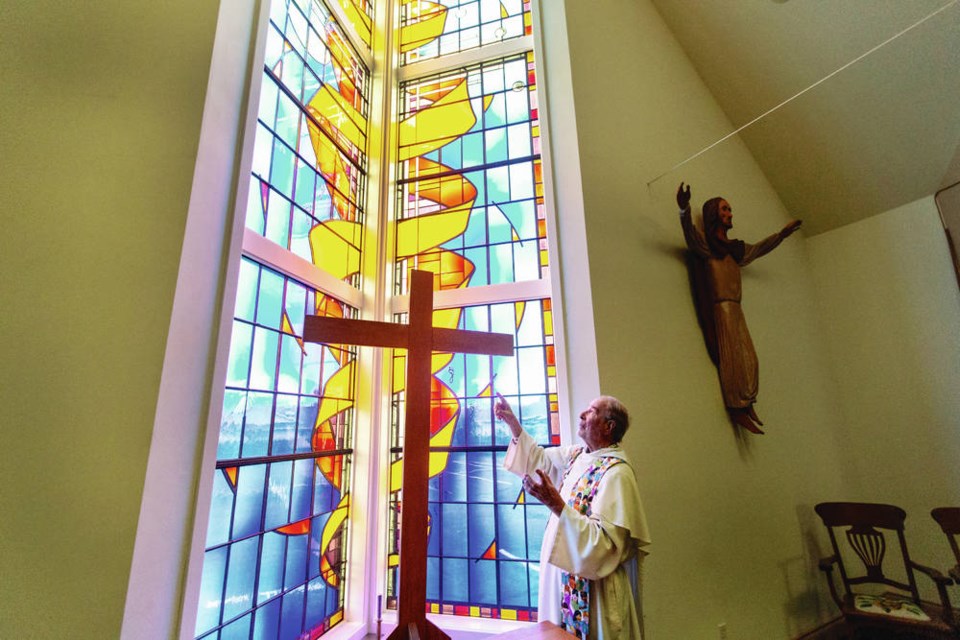On this Easter weekend, people don’t need a chapel or a temple or even faith to act with love and serve others, says Father Rolf Hasenack.
This is the second spring that faith groups have not been able carry out traditional services and celebrations — including Easter, Passover and Ramadan — due to the pandemic. Limited indoor worship services were to be allowed before being suspended again this week. Outdoor religious gatherings are still permitted, but many places of worship planned to just hold services online.
People want to celebrate together for religious and social reasons, but most understand the restrictions are necessary for the greater good of stopping transmission of the virus, said Hasenack, a Catholic priest at St. Elizabeth’s in Sidney, Our Lady of the Assumption in Saanichton and St. Jean-Baptiste in Victoria.
“We don’t need to go to church to celebrate our faith, you can do it wherever you are — whether it’s a young person helping in Tim Hortons or McDonald’s, they can can communicate joy to people they serve,” said Hasenack, who is known as Father Rolf.
He said the original meaning of crisis was “the turning point in a disease” and that the pandemic has also provided us with a turning point or “opportunity” to do and see good, find new ways to communicate and support one another, and discover or rediscover what is essential in our lives.
“Ultimately, the pandemic is, in a sense, forcing people to find what is essential in their own life … the values, the beliefs that are part of person’s life, no?” he said. “I think there’s some good things to come out of all of this.”
Hasenack, who is 80, was born in Indonesia to a Dutch father and German mother and spent three years in a Japanese internment camp with his mother and siblings; his father died in a separate camp. Between the ages of six and 15, he lived with relatives in Holland before he could reunite with his mother in Canada.
“Having lived in a concentration camp and my life experiences — having moved a lot and being separated from my family during formative years — has helped me to cope with whatever adversity there might be,” he said.
For Christians, Easter is a time of the resurrection, renewal and new life, he said.
Hasenack reflected this week on the story of Teresa of Avila, a Spanish Carmelite nun and author in the 1500s who wrote that Christ isn’t present physically but is in us: “Christ has no body now but yours, no hands, no feet on Earth but yours, yours are the eyes with which he looks compassion on this world.” Despite the pandemic, we can be that, he said.
“That is what Easter is all about, not just about something in the past, but what is possible today.”
There’s been pain and suffering and death in the pandemic and crimes have continued, he said, sharing the story of a priest who returned to Brazil to care for his parents only for all three to die of COVID-19. But there is also evidence everywhere of new life, he said.
Doctors and nurses continue to work tirelessly to make life possible for people in extended care or in hospital, he said. “Being that positive is not easy, but they do it out of love for what they are doing, but also out of love for the people for whom they are caring.”
There are hundreds of examples each day of good works being performed, of people serving others, he said. “There’s an awful lot of goodness in the world by people sharing who they are and serving others.”



